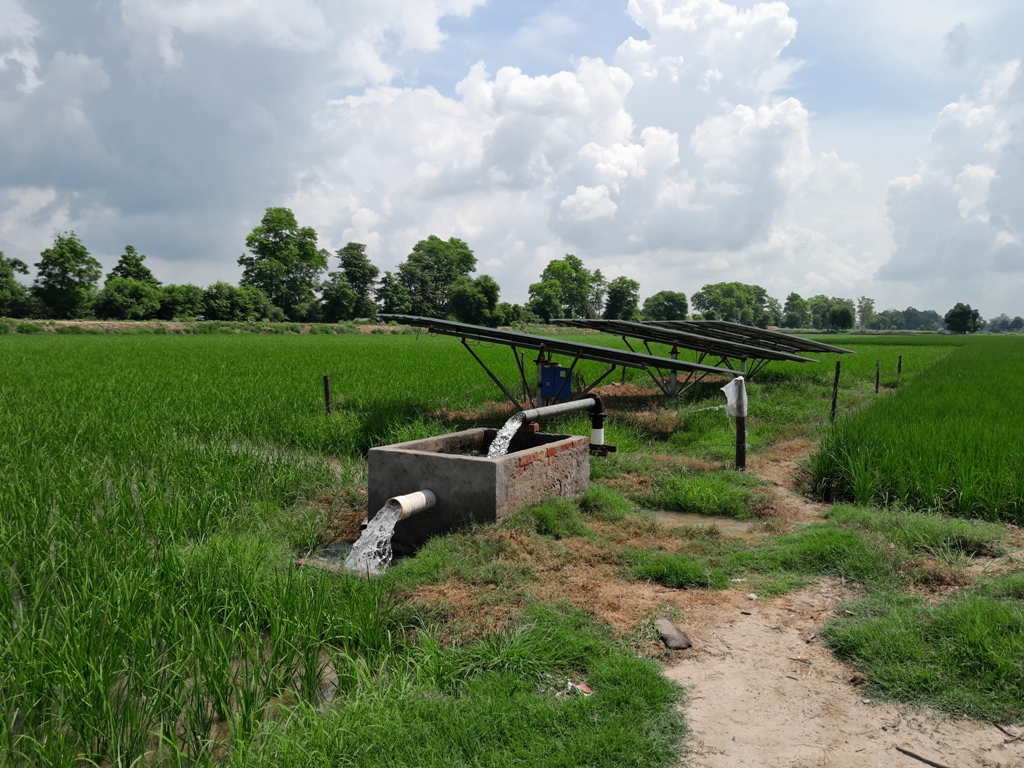Raghbir Singh Brar
Faridkot
The Punjab government has advanced the dates for paddy transplantation from June 10 last year to June1 by dividing the state into three zones for the upcoming paddy sowing season from June 2025.
Now the farmers will be free to sow paddy from June 1 to June 9 in Punjab, at least ten days earlier.
The government has taken this step to ensure that the procurement of the paddy now goes on smoothly and more window period be provided to sow wheat.
The farmers often complained that if they start transplanting paddy from June 10 onwards, it matures in the second week of october.
Those days are shorter,moist and the weather is smoky because of which the produce does not lose its moisture content and remains unsold in the markets.
But actually, the problem was exaggerated by the failure of the government itself. Though the paddy started arriving in grain markets in the first week of October, it was not procured by October 20 due to the reluctant attitude of the rice millers that they did not have free space as their previous years shelled rice was not moved out of the mills.
It led to the delayed harvesting, the glut in the grain markets leading to the space crunch.
If there is free space in the grain market, the moistened content can be lowered by thinning the produce in the grain markets.
But now as the government has almost advanced the paddy sowing by 10 to 15 days, it has led to the problem of the sowing of its banned varieties like PUSA 44.
About 15 lakh tubewells, which get free power supply, would run for 15 days in advance when the temperatures are much higher and because of evaporation, water does not stand in the fields.
In the long run, it would lead to the lowering of the subsoil water from where it would not be pumped out simply and lead to deeper tubewells and high power submersible.But the question is how long the farmers would chase the downing water?Finally, there would be problems with drinking water.The land would turn barren.
The state government instead of correcting its procurement process, took a drastic step which is not at all in the interest of the state.
The farmers had almost managed to delay the paddy transplantation and formed a habit of delayed sowing for about 15 years,saying it yielded good results , but the government once again gave the farmers free hand to exploit as much ground water as they wished.
I think Punjab farmers are not in love with their land, natural resources and the government is only placating the ignorant farmers, devastating the future of the state for petty gains.
By selling paddy, in my opinion, farmers do not even recover the cost of its natural resources.
what does Punjab Preservation of subsoil act of 2009 says:(from the google)
No originality claimed for the below mentioned information.
The Punjab Preservation of Subsoil Water Act of 2009 aims to conserve groundwater resources by delaying paddy cultivation and transplanting beyond specific dates. The Act prohibits sowing paddy before May 10th and transplanting before June 10th. The purpose is to reduce water consumption during the hottest months and minimize evaporation.
- Delaying Paddy Cultivation:The Act mandates a delay in sowing nursery and transplanting of paddy beyond May 10th and June 10th, respectively, to reduce water use during the hottest and driest months.
- Reduced Water Consumption:By delaying paddy cultivation, the Act aims to reduce the overall water requirement for the crop, as the monsoon rains contribute significantly to the water needs after June.
- Addressing Groundwater Depletion:The Act is intended to address the issue of groundwater depletion, which is a major concern in Punjab due to the intensive cultivation of rice and wheat.
Impact and Consequences:
- Reduced Groundwater Depletion:Studies have shown that the Act has contributed to a reduction in the rate of groundwater depletion.
- Unintended Consequences:The delayed harvesting of paddy leaves farmers with less time to prepare the fields for the next crop, leading to an increase in stubble burning, which contributes to air pollution.
Overall, the Punjab Preservation of Subsoil Water Act is a policy aimed at conserving groundwater by regulating paddy cultivation practices, but it has also had some unintended consequences, including increased stubble burning.

